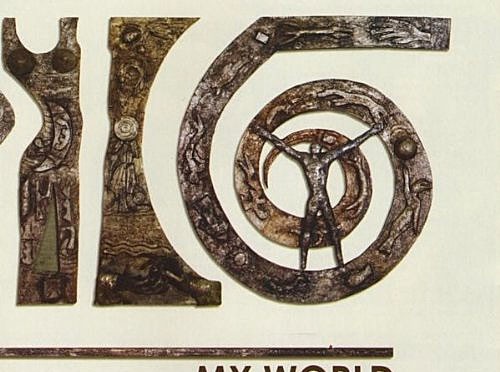Mushy Widmaeir’s album My World went fairly unnoticed in the United States, as it is the case for most Caribbean art music and Jazz albums in general. Neither was a commercial hit in Haiti. My World was released in 2006 and is now 10 years old. It features one of the most important songs composed in contemporary Haitian cultural history – Arrawak dance (My World).
Haiti is misunderstood. Haitians are not only the descendants of West and Central Africans and of Europeans. Haitians are also the descendants of Native Americans that populated the Caribbean, the Arrawak, the Taino, and the Caraibes, amongst other tribes.
Haitian cultural history, because of this often ignored fact, is a misunderstood history. Most people, in and outside of the country, know it to be the first “free black republic”, and that the history of Haitian feeling has mostly to do with African culture transposed to the Americas. However, it is not the case. Haiti was named Haiti, Taino for “land of mountains”, for a specific reason: in honor of the Taino who had lay foundations for the Haitian revolution through their own rebellions, which famously included Queen Anacaona’s and King Caonabo’s fighting Spanish settlers.
Except for a few remnants of Taino, Arawak, and Caraibes culture, the island’s first inhabitants and the memories of their lives are now extinct. Haitians still eat cassava, still participate in Rara, and still pray to Papa Loko but are all for the most part unable to even begin to envision who these first Haitians were and how exactly to think about that past’s relationship to their present.
Widmaeir has spent an entire life making danceable and romantic cerebral music. He seems to believe that music should be the natural expression of social life and has gone about proving his thesis through the bands Zekle, Lakansyel and through his own Jazz albums. His sound on most of the albums is very similar: is quiet, rhythmic, precise in its composition, and often stormy as if to suggest that deep romantic feeling as an ideal.
With Arrawak Dance, he does no differently. It is the very first song on the album and because my world is in parentheses next Arrawak Dance, it seems to the title song. The 6:58 composition immediately begins with a mystical sounding intro before it gets into an unforgettable melody.
Melody is soon layered with what sounds like scat singing or chanting. The song has no words, which makes much more sense than if it had words – the Arrawak did not leave much writing other than hieroglyphic like drawings. The song is well harmonized and very well nuanced. In the end, the song offers a very melodic and rhythmic take on the very little known foundations of Haiti in a wonderful way. It translates the feeling of descending from Native American culture as no other Haitian song ever has.
The rest of the album is great and should be listened to. Widmaeir produces music as few Haitians do – with very ambitious compositions.
Most Haitians produce songs in order for them to be popular, including the more political and artistic ones. Widmaeir produces music for human listening: every not is precisely placed, as if a mix of popular rhythm and classical composition. The song Arrawak Dance should especially be noted. It is a song that has the ability not only to replenish a society through the contemplation of one’s history but also enlightens anyone’s soul about the history of Haitian feeling.
Buy My World


